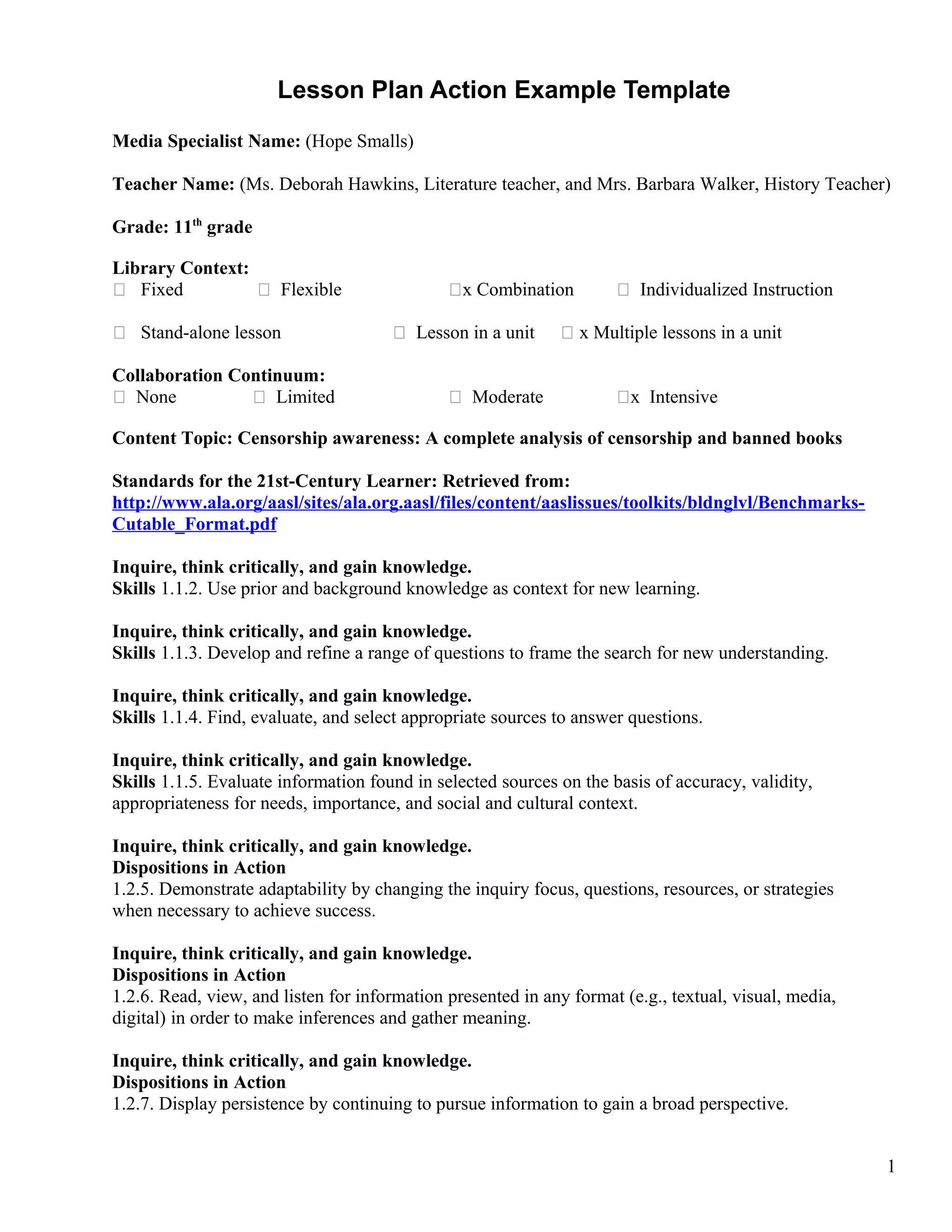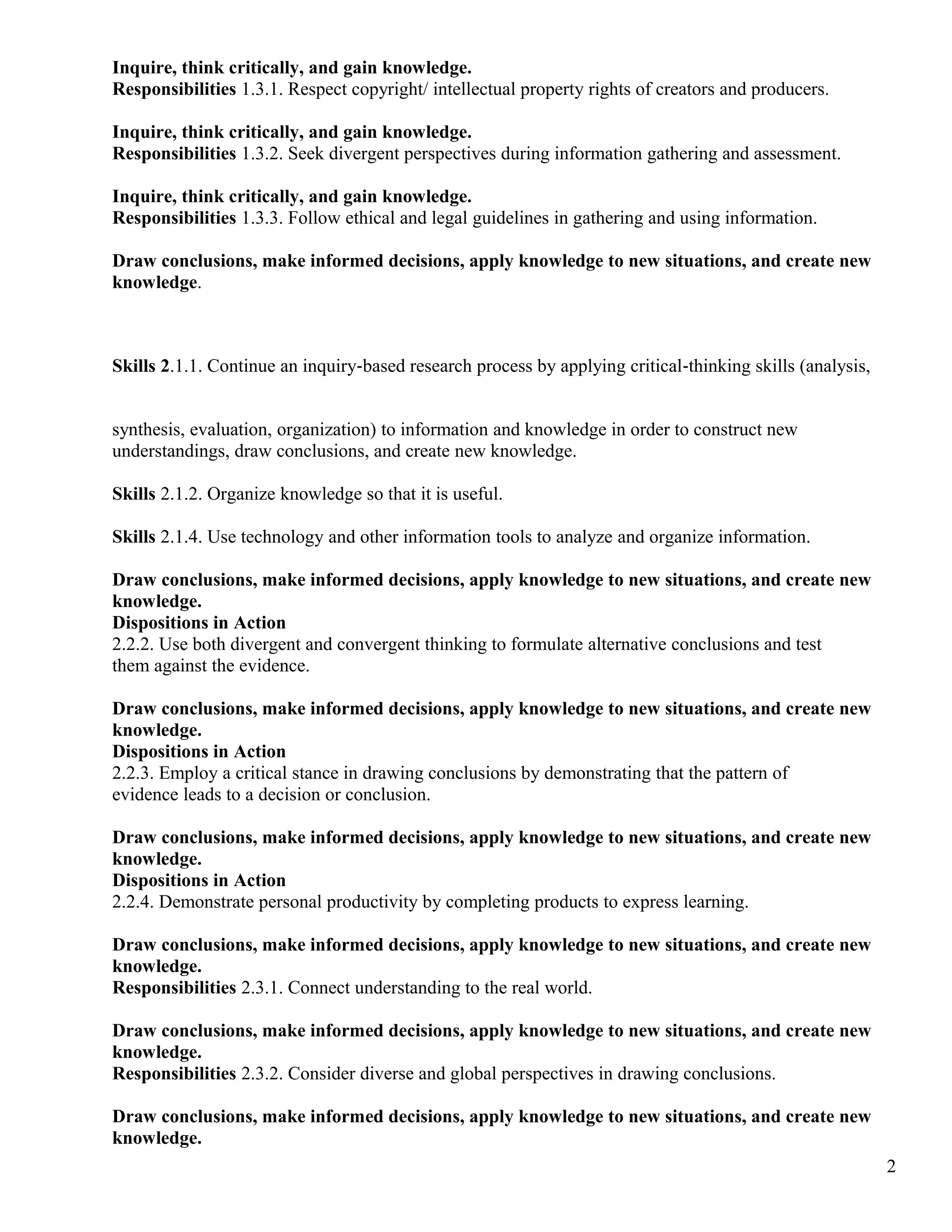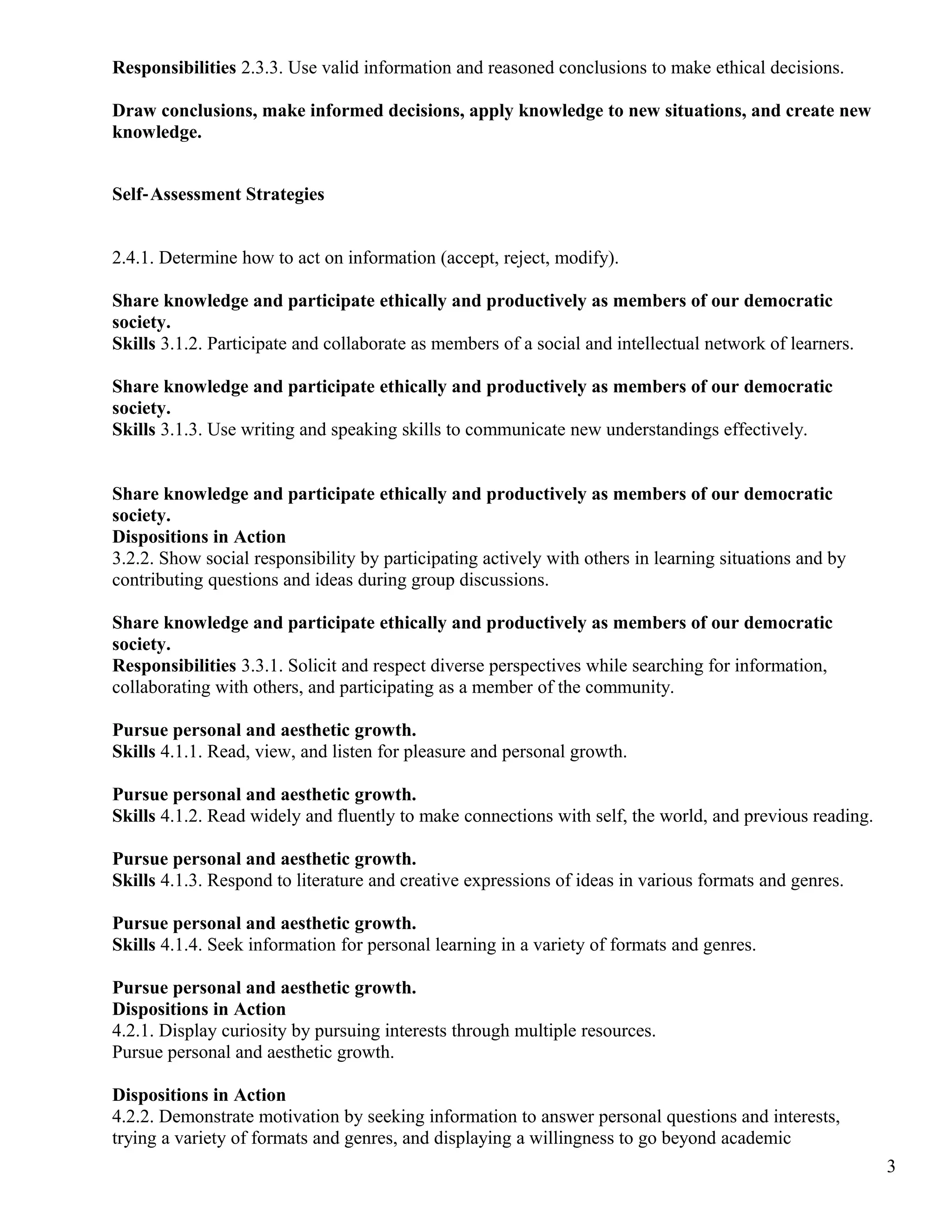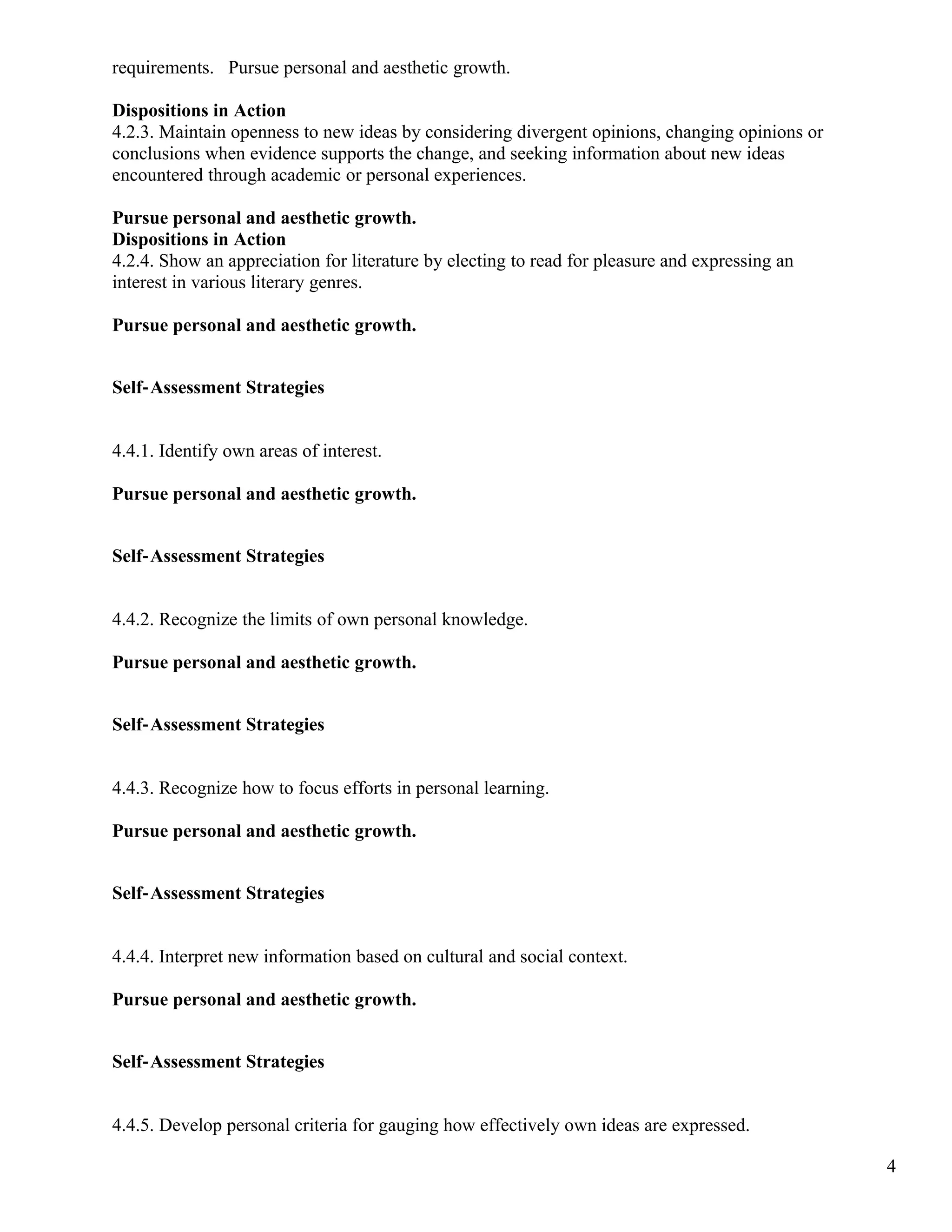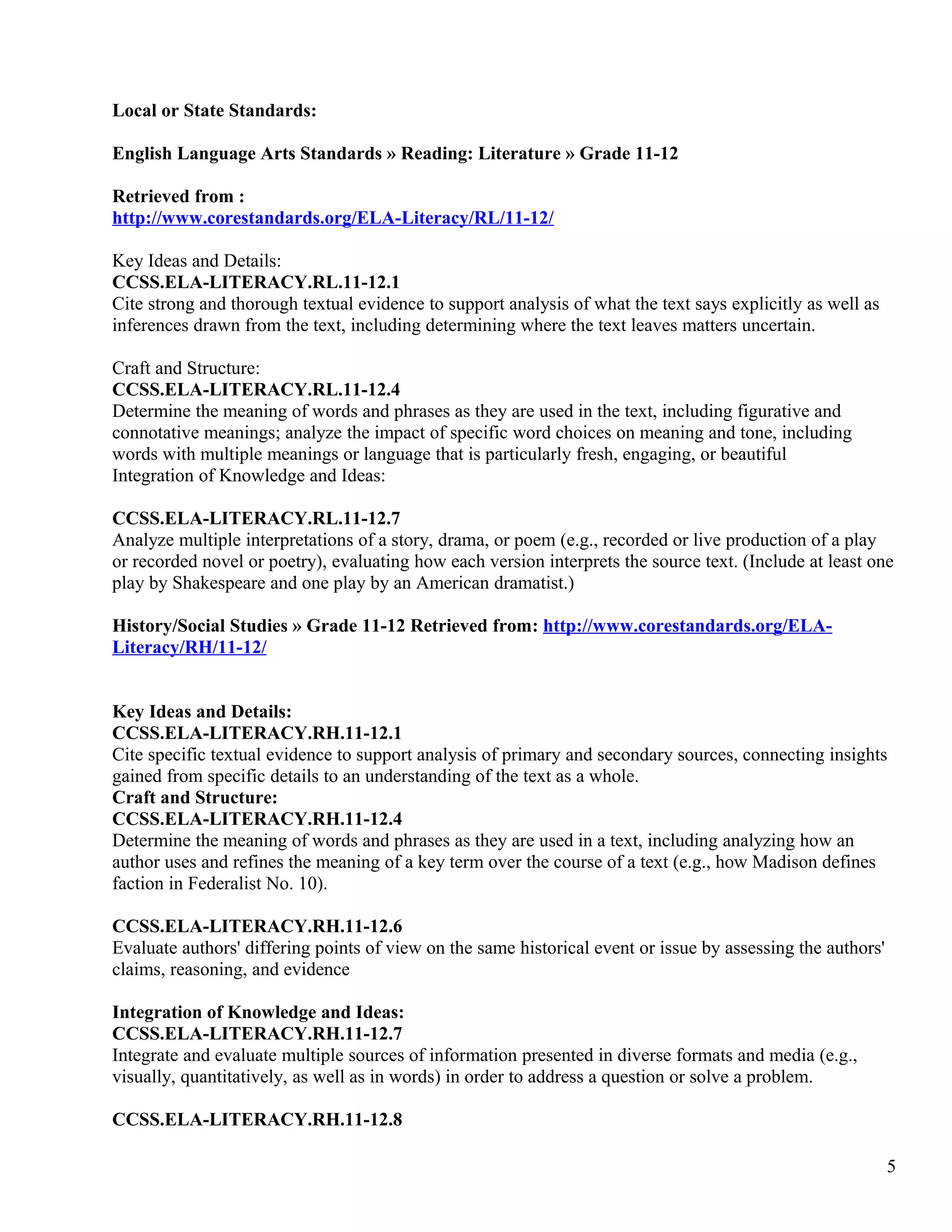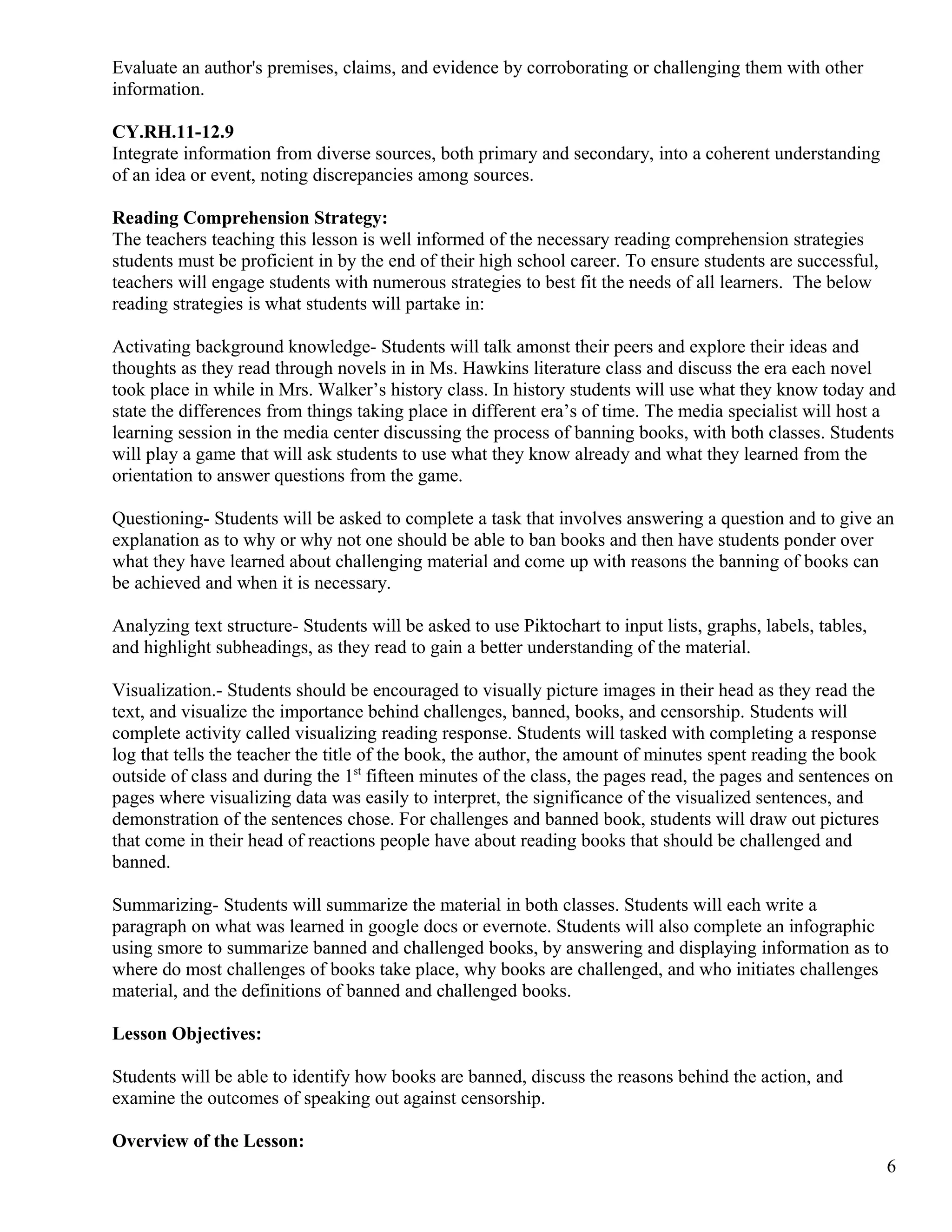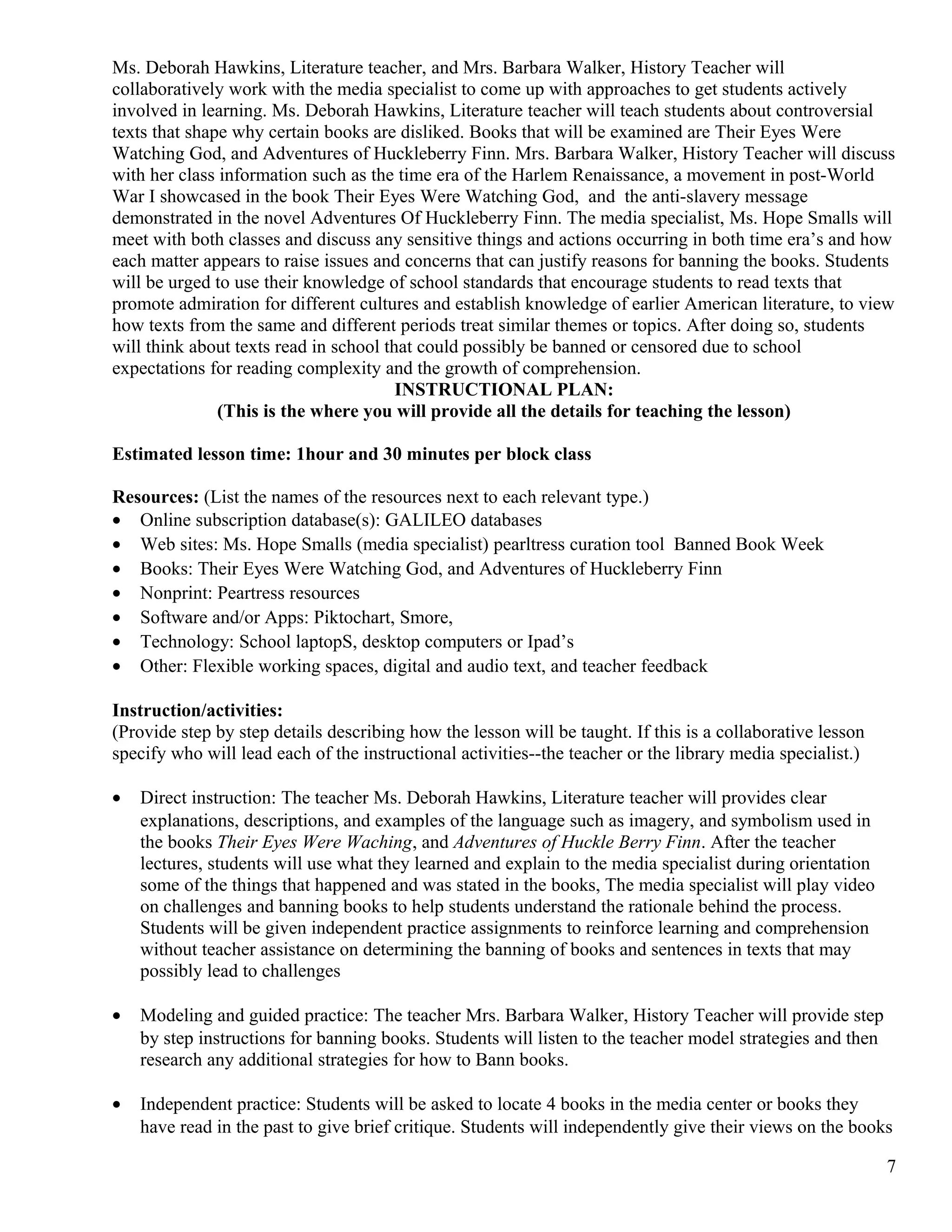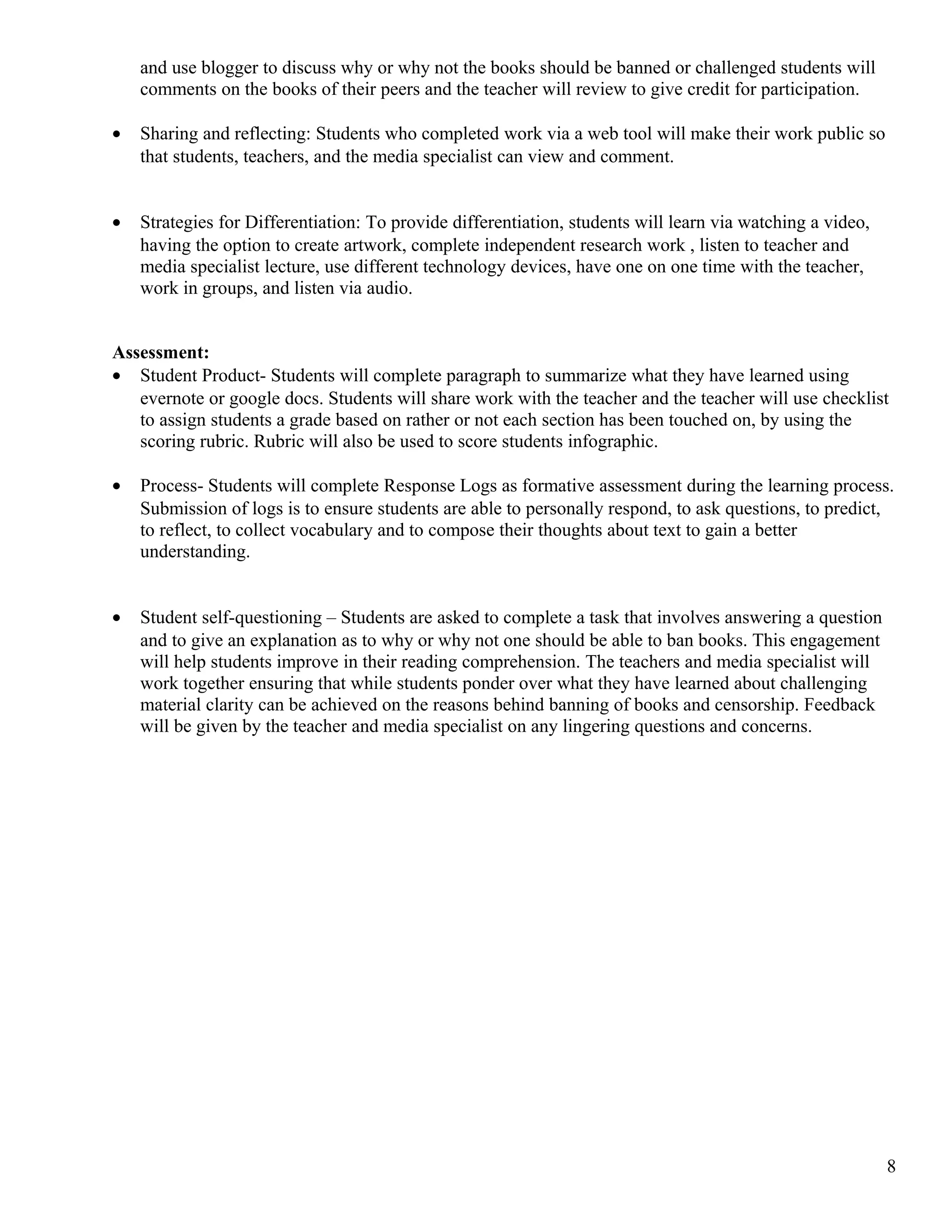This lesson plan involves two teachers - a literature teacher and a history teacher - collaborating with the media specialist to teach 11th grade students about censorship and banned books. Students will examine novels like Their Eyes Were Watching God and Adventures of Huckleberry Finn that have been controversial and sometimes banned. They will discuss reasons books may be banned or censored while also considering perspectives on promoting diversity and complex themes. Students will use strategies like summarizing, questioning, and visualizing to analyze texts and consider different viewpoints on censorship issues. Assessment includes students creating summaries, response logs, and an infographic to demonstrate their understanding.
